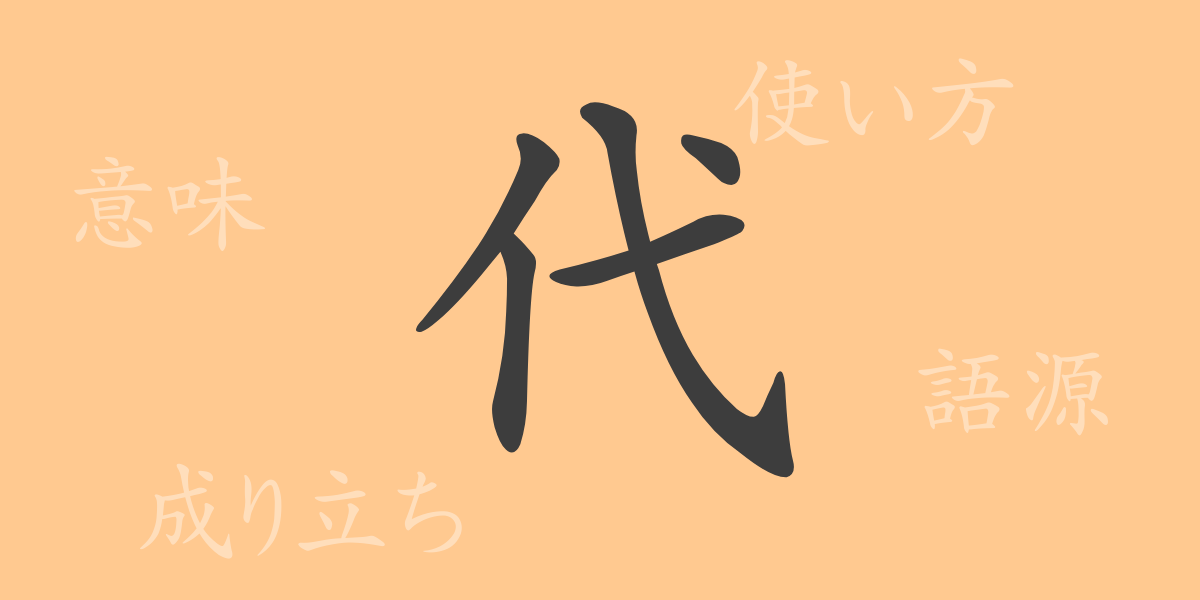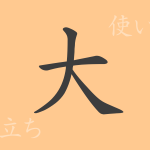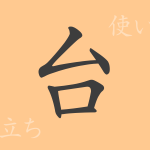Japanese kanji are renowned for their complex forms and meanings, each rich in history, significantly shaping Japan’s culture and language. ‘代’ (だい) (dai) is a commonly used kanji in everyday life, serving various purposes. This article delves into the origins, meanings, applications, and the role of ‘代’ in the Japanese language, offering a comprehensive examination from its historical roots to its modern usage.
Origins of ‘代’ (だい) (dai)
The kanji ‘代’ originated in ancient China, initially representing ‘a stretch of rice fields’ as a pictograph. Over time, it evolved to include meanings related to the passage of time and replacing one thing with another, becoming a significant character representing various cultures and eras.
Meanings and Applications of ‘代’ (だい) (dai)
‘代’ encompasses several meanings. It commonly indicates ‘replacement’ or ‘substitute,’ used when one item replaces another. It also denotes the flow of time, as in ‘era,’ and can imply generational change. In financial contexts, ‘代金’ (だいきん) (daikin) refers to money involved in transactions, illustrating its pivotal role in Japanese contexts.
Readings, Stroke Count, and Radical of ‘代’ (だい) (dai)
‘代’ is versatile in its pronunciation and features in Japanese:
- Readings: On’yomi are ‘ダイ’ (dai) and ‘タイ’ (tai), Kun’yomi include ‘かわる’ (kawaru), ‘かわり’ (kawari), ‘よ’ (yo), and ‘しろ’ (shiro).
- Stroke Count: ‘代’ consists of 5 strokes.
- Radical: The radical for ‘代’ is ‘人偏’ (ひとえ) (hito hen), related to humans.
Phrases, Idioms, and Proverbs Using ‘代’ (だい) (dai) and Their Meanings
There are numerous idioms and phrases involving ‘代’. For example:
- ‘代表’ (だいひょう) (daihyou) – Represents a person or item acting on behalf of a group or organization.
- ‘時代遅れ’ (じだいおくれ) (jidai okure) – Describes something outdated or behind current trends or standards.
- ‘一代記’ (いちだいき) (ichidaiki) – A biography detailing an individual’s life or achievements.
- ‘代わる代わる’ (かわるがわる) (kawarugawaru) – Describes taking turns or changing in succession.
Summary on ‘代’ (だい) (dai)
The kanji ‘代’ plays a crucial role in the Japanese language through its diverse meanings and uses. Understanding its historical evolution to modern applications offers insight into the dynamic changes and depth of Japanese culture. Mastering ‘代’ is essential for effective communication in Japanese, providing a vital skill for any language learner or enthusiast.

























